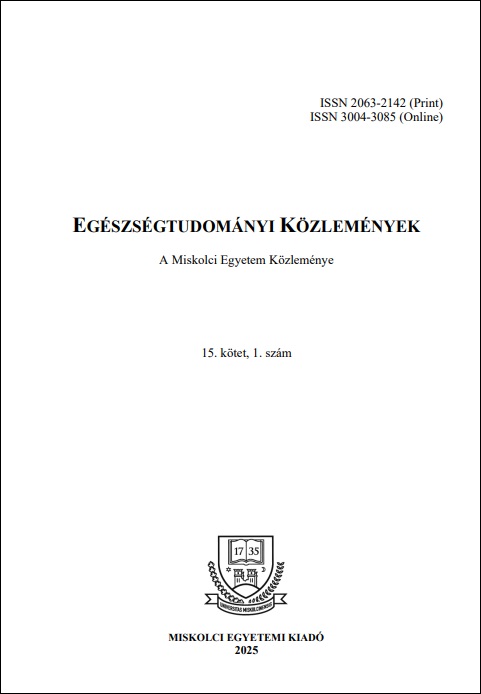Fertőzések okozta intrauterin gyulladás: a fenyegető koraszülés és koraszülés immunbiológiája
Intrauterine inflammation caused by Infections: the Immunobiology of Premature Labor and Premature Birth
DOI:
https://doi.org/10.32967/etk.2025.008Keywords:
intrauterine infection, vaginal microbiome, preterm birth, fetal epigenetic effectsAbstract
Preterm birth affects more than 15 million pregnancies annually and remains a leading cause of neonatal morbidity and mortality. Pregnancy involves a tightly controlled maternal immune response that requires a delicate balance between effective host defense against potential infection and maintaining tolerance to the foreign fetus. The vaginal microbiome, due to its anatomical location near the uterus, is a potential source of colonization and development of the fetal microbiome. In the presence of a highly diverse microbiome, such as in bacterial vaginosis, an increased risk of infections, spontaneous preterm birth, and pelvic inflammatory disease has been observed. These bacteria have been shown to induce a strong intrauterine inflammatory response, leading to preterm birth. Microbiological studies of amniotic fluid suggest that approximately 25% of all spontaneous preterm births are associated with infection.
Intrauterine infection is also associated with adverse neonatal outcomes, which are associated with increased morbidity and mortality. Due to abnormal epigenetic effects, premature infants are at higher risk of cardiovascular disease, hypertension, and diabetes in adulthood. The local microbiome, along with the mucosa-associated immune system of the cervix, also participates in the defense against infections. The endocervical canal is an anatomical and immunological barrier against ascending infection. If this barrier is damaged, the risk of ascending uterine infection increases, as bacteria can penetrate the uterine cavity. A successful pregnancy requires a finely regulated cooperation between the fetal-placental tissues and the maternal immune system. In the event of an intrauterine infection disrupting this sensitive cooperation, miscarriage, premature birth, failure of fetal development, or even the development of other pregnancy complications must be expected. Maternal bacteremia and transplacental transfer can also cause intrauterine infection. In intrauterine infection, the most common cells involved in the local inflammatory response are neutrophils and monocytes/macrophages, and to a lesser extent T cells, B cells, and NK cells. Based on their pharmacokinetics and broad coverage of bacteria typically found in amniotic fluid, the recommended antibiotic regimen is clarithromycin, ceftriaxone, and metronidazole.

